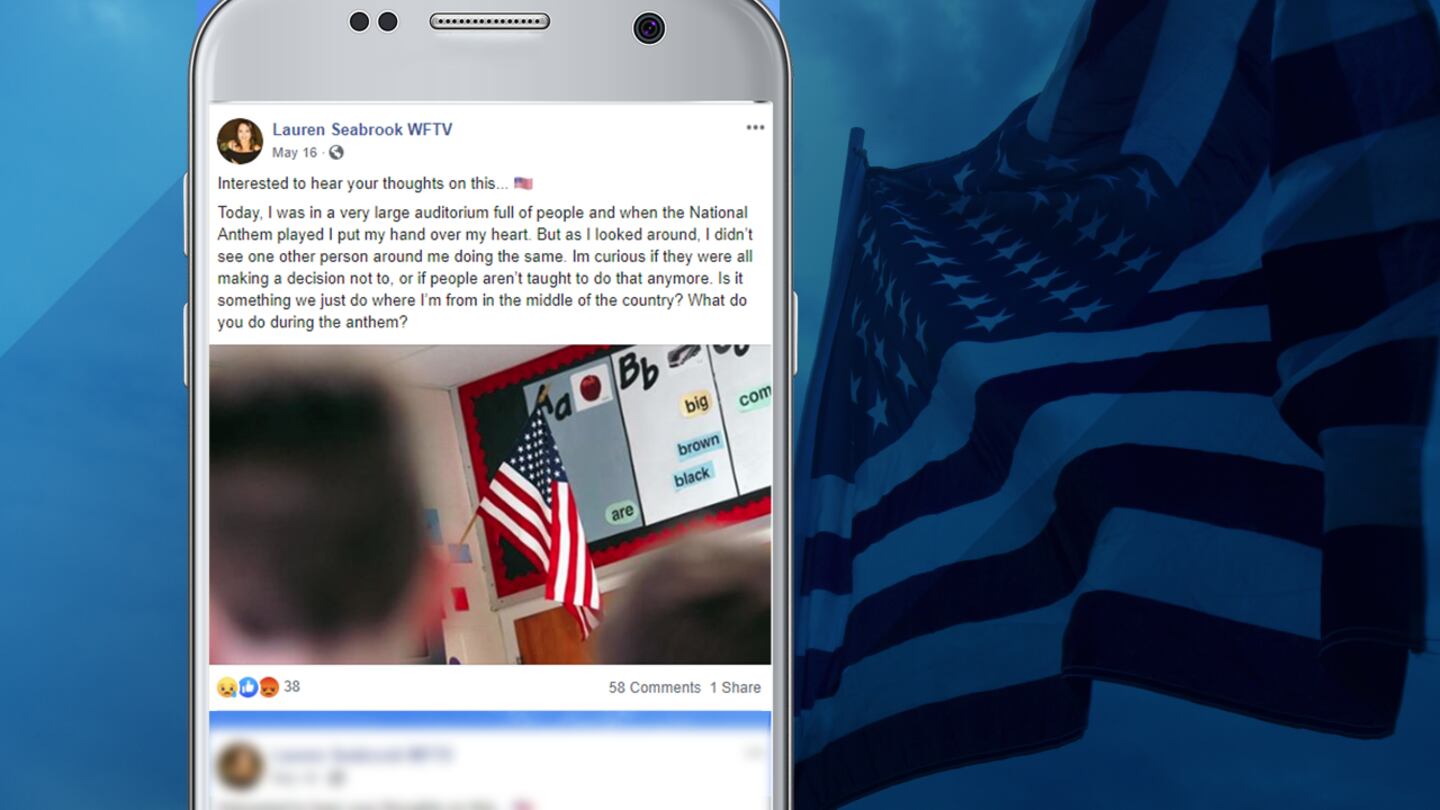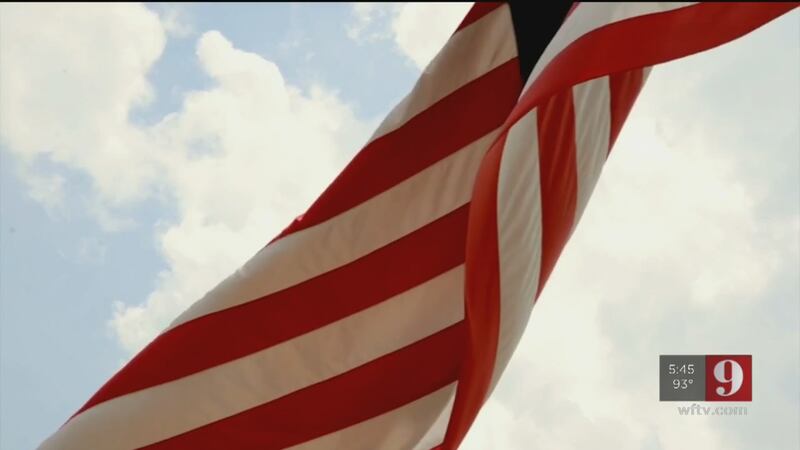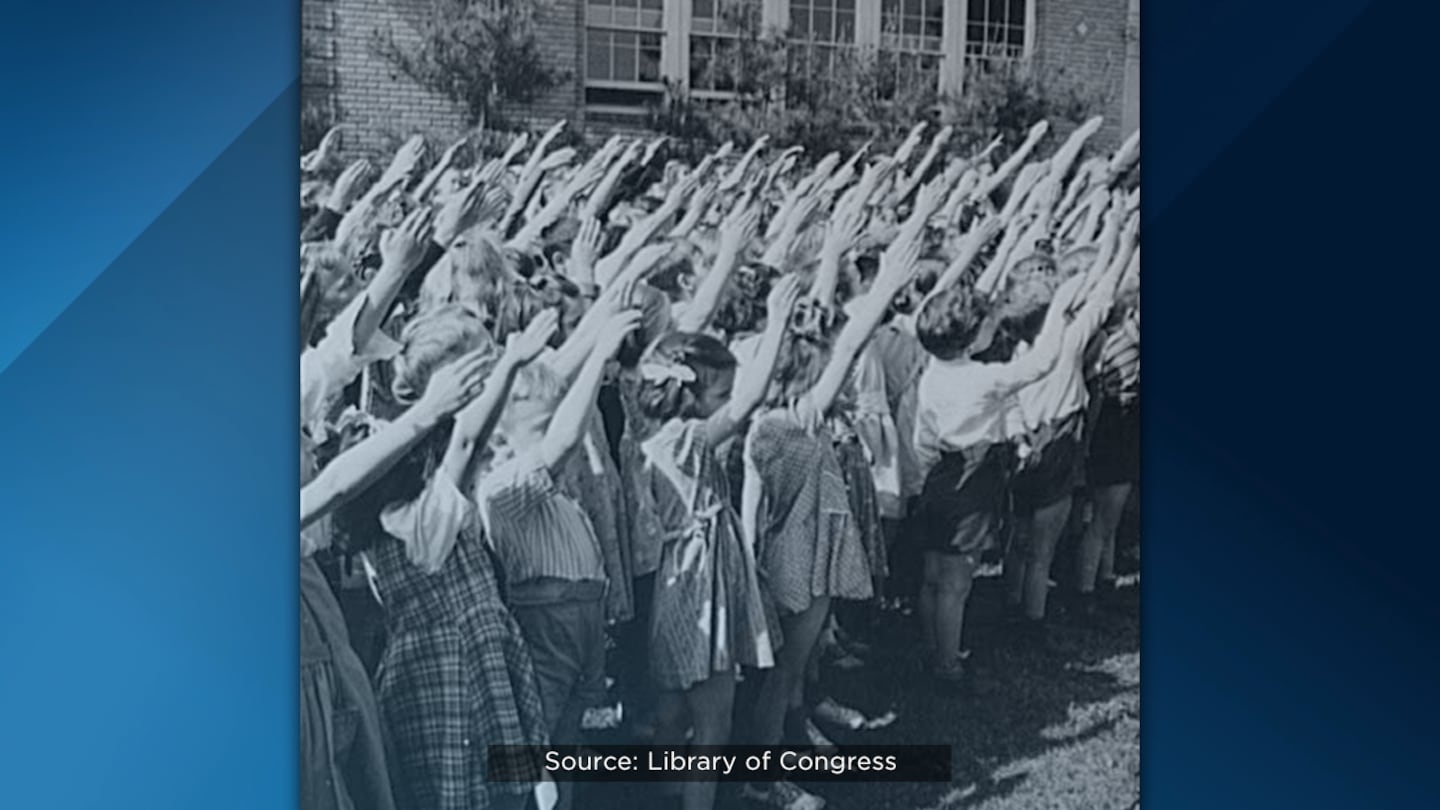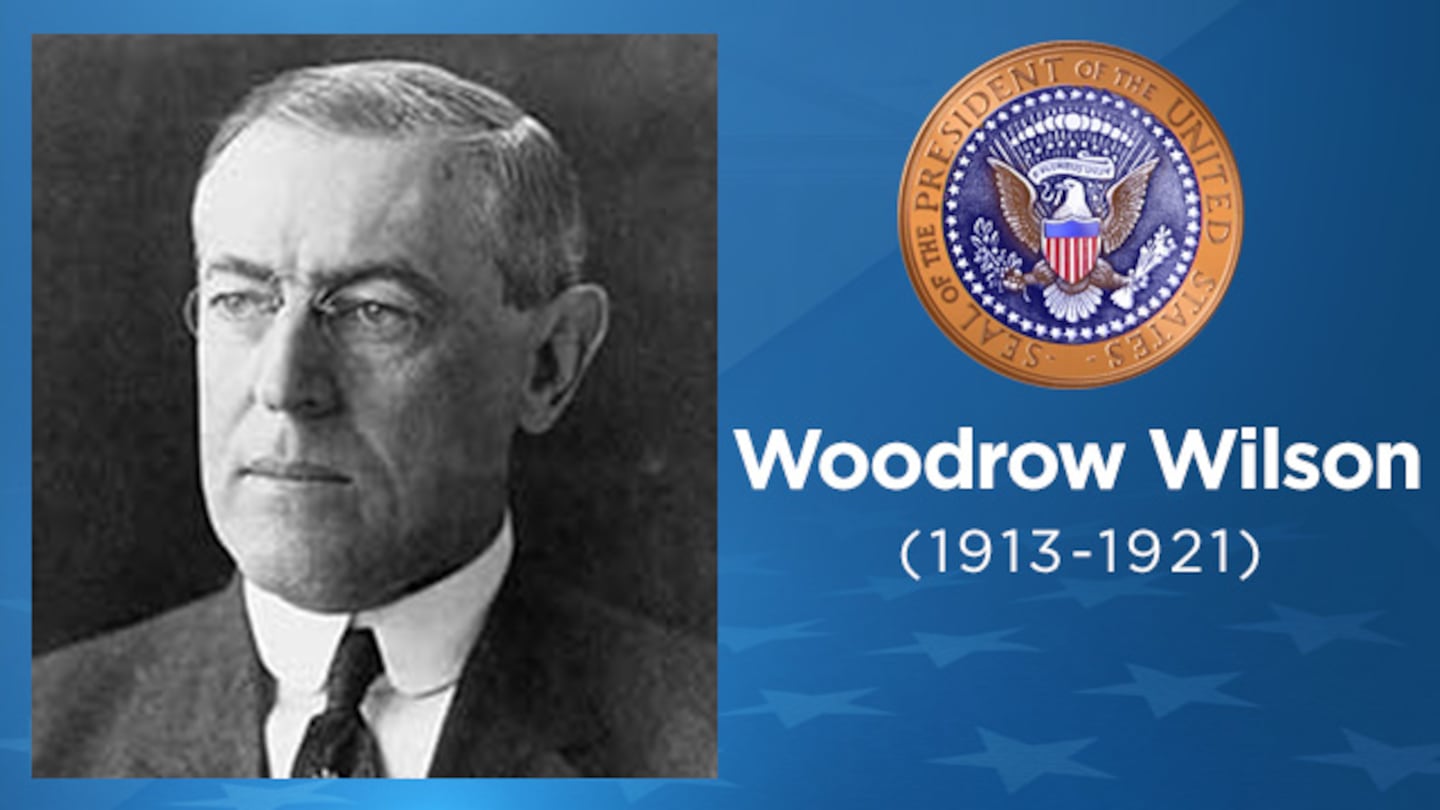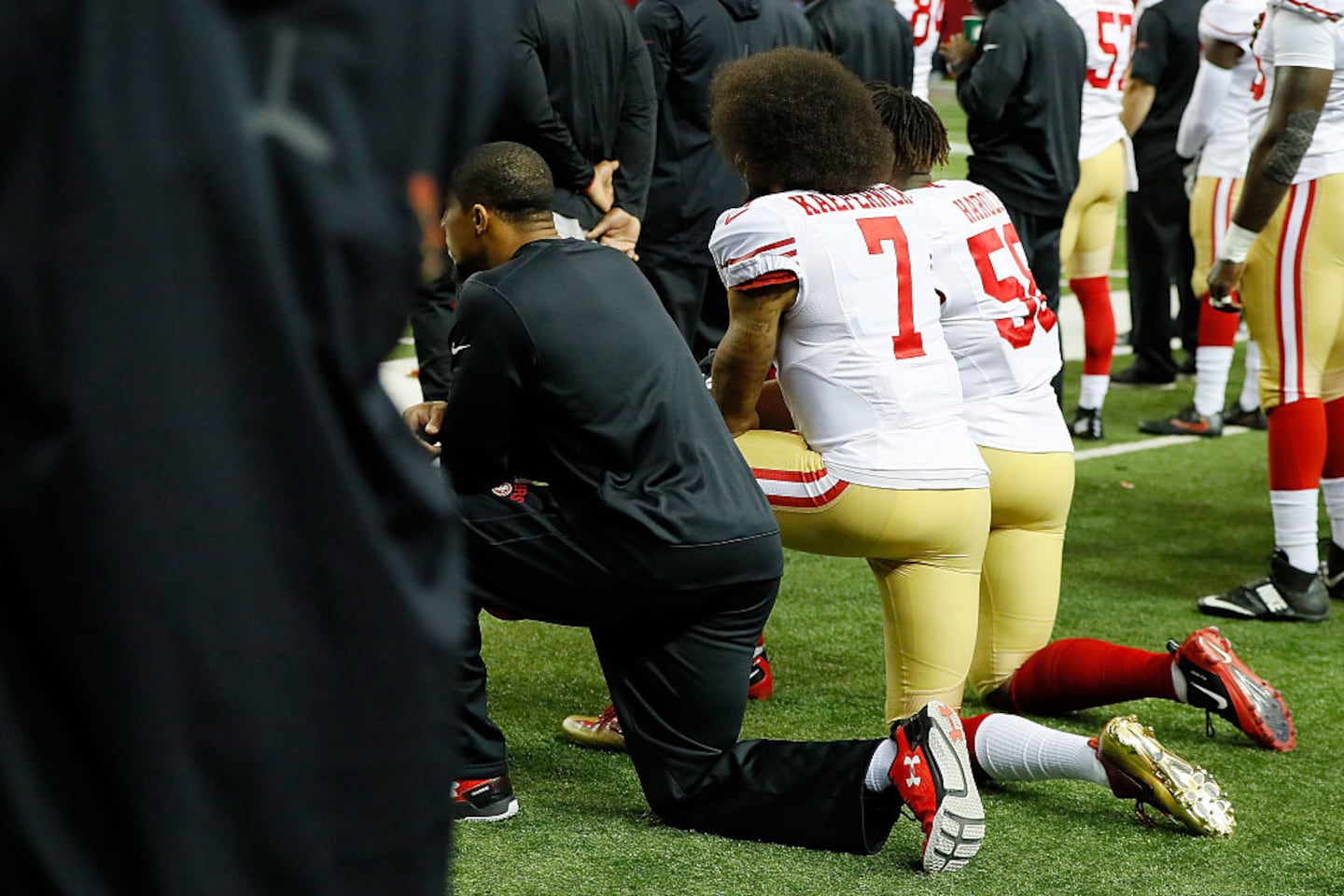ORLANDO, Fla. — On a typical workday in mid-May, Channel 9 reporter Lauren Seabrook attended a meeting at an auditorium in Orlando for a story she was covering. When the national anthem played, she put her right hand over her heart. But looking around, she noticed no one else was doing the same.
Curious about what she saw, she wrote about it on her WFTV Facebook page: "Interested to hear your thoughts on this. What do you do during the anthem?"
(Scroll to the bottom of the story to see the full Facebook post)
The responses varied. Some people said they stood with their hands over their hearts during the Pledge of Allegiance but not during the national anthem. Others said they always stand for the song, hand over heart, even inside the privacy of their own homes. Some said they do nothing.
Intrigued by the responses on Facebook and the controversy involving the playing of the national anthem at NFL games, Seabrook pursued the story to find out how Central Floridians feel.
"Do you respect the national anthem? Do you respect the flag? If you don't, then why are you here?"
"I go to sporting events, and sometimes I'm a little disappointed," Scott Finnell told Seabrook.
Finnell is a veteran of the United States Navy. They met at an Orlando-area Veterans of Foreign Wars post to talk about the national anthem.
"I'll give them at least they're standing at attention and remaining quiet," he said, "and they don't have anything in their hands."
He said it really bothers him when he sees people on their phones, drinking a beer or not removing their hats while the anthem is being played.
"Do you respect the national anthem? Do you respect the flag? If you don't, then why are you here?" he said.
Writing to Seabrook on Facebook, Milly Miller, who identified herself as a Navy veteran, said she was taught to salute during the Pledge of Allegiance but not during the national anthem. Other people shared similar stories.
Seabrook looked up the U.S. Code that defines the etiquette of the national anthem.
"Those are things I was taught as a youth, to honor the flag and honor America," Orlando resident Cynthia Harris said.
Pom Ping, who immigrated to Central Florida from Cambodia, spoke about respecting the flag and what it stands for.
"I wasn't born here, but I obviously got here as fast as I can, the legal way, so definitely a lot of pride and tradition in my family that this great country is one of the best," he told Seabrook.
Putting your hand over your heart wasn't always the sanctioned way of doing things.
Prior to World War II, Americans addressed the flag with the gesture adopted by the Nazis and now commonly recognized as the Sieg Heil, Nazi salute or Hitler salute. It consists of raising an outstretched right arm with the palm down. The tradition of placing the hand over the heart was adopted after the war.
The Nazi salute is illegal in Germany and Austria. It is a criminal offense in Poland and Slovakia. Many other countries consider it to be a form of hate speech if used to promote Nazi propaganda.
After Seabrook's story initially aired on WFTV, she received an email from viewer Grace Cone. Cone wrote that, at 86 years old, she remembers when the Nazi salute was removed from schools' daily rituals. She described starting with her right hand on her heart and then flinging it toward the flag but said it wasn't done for "The Star-Spangled Banner," but for the Pledge of Allegiance.
When the U.S. entered World War II in 1941, "The Star-Spangled Banner" had only been the national anthem for 10 years, but its place in American history had long since been established.
A 35-year-old lawyer named Francis Scott Key wrote the lyrics as a poem in 1814 after witnessing the Battle of Baltimore in the War of 1812. On Sept. 14, 1814, he saw the American flag fly over Fort Henry following the battle and realized the Americans had survived the attack and the British Navy had withdrawn from the harbor.
- The United States Congress declared war on Great Britain on June 8, 1812
- The American government felt the British were interfering in trade
- With the czar of Russia acting as a mediator, the U.S. and Great Britain signed the Treaty of Ghent on Christmas Eve of 1814, effectively ending the conflict
"The Star-Spangled Banner" went on to become one of the nation's best-loved songs in the 19th century. It became more significant during the Civil War, in 1861-1865. By the 1890s, the military played the song for ceremonial reasons and required it to be played during the raising and lowering of the colors.
"This country needs a national song to give expression to its patriotism."
U.S. Rep. John Charles Linthicum (D-Maryland)
But it wasn't declared the U.S. national anthem until the 20th century. U.S. Rep. John Charles Linthicum (D-Md.) introduced legislation in the spring of 1929 that would make "The Star-Spangled Banner" the country's anthem. President Herbert Hoover signed the bill into law March 3, 1931, which was seen largely as a formality given that President Woodrow Wilson had officially recognized the song for use in 1916.
The song is not without controversy. Jason Johnson, a professor of political science at Morgan State University, argues "The Star-Spangled Banner" harbors a racist history. Writing for the online news site "The Root" in 2016, Johnson argued the third stanza of Key's poem denounces the former slaves who worked with the British government during the war.
Orlando resident Cynthia Harris told Seabrook she doesn't disagree with the assessment the national anthem is racist.
"Independence Day was not for America's freedom for African Americans or any person of color. It was the freedom for the people that came here that ruled the country," she said.
Harris described what she does when the national anthem plays.
"We have a hard time trying to get the message out."
"If I'm in a setting where there's some tension in that particular scenery, I may put my hand over my chest, but I may do this," she said, placing a fist over her heart instead of a flat hand.
It's a sign of solidarity with the civil rights movement.
In 2016, NFL quarterback Colin Kaepernick vowed he would not stand for the flag again unless police brutality ended. He and other players chose to kneel instead.
"A lot of times, you can't get your message out no other way," said Orlando resident Casa Sconiers. "Especially when it comes to people of color and other things. We have a hard time trying to get the message out."
"That kind of protest - what does it really accomplish? To me, nothing," Finnell said. "All it does it show disrespect for the flag."
But Harris believes the controversy has forced people to look deeply for bias.
"What I say to veterans is that, thank you for your service, but also as an African American, veterans were not respected, and they're still not respected in this country equally," she said.
While gathering information for this story, Seabrook encountered many people who thought it was illegal to not salute the flag or put their hand over their hearts during the national anthem and the Pledge of Allegiance.
"The First Amendment protects freedom of speech or expression, even when it takes the form of protest," said WFTV legal analyst Bill Sheaffer.
What do you think about this issue? Email Lauren.Seabrook@wftv.com to share your thoughts.
Cox Media Group

